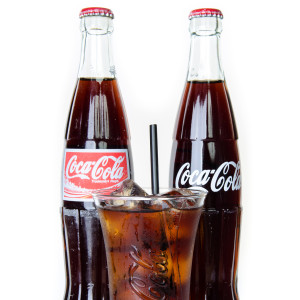In a rare victory for consumers and taxpayers, Cook County, Illinois, lawmakers repealed a 2-month-old tax on sweet drinks this month. The cent-per-ounce tax, a lightning rod of controversy during its brief existence, has already found an army of supporters urging reimplementation. But, despite defenders’ claims that the law was a sound way of filling coffers and curbing obesity, such taxes do little for waistlines or public finances.
Consumers and taxpayers, inconvenienced as always by the heavy hand of government, undercut these types of taxes in ways completely unanticipated by policymakers.
Despite the dubious effectiveness of soda taxation, Cook County’s policy pushback is unlikely to deter future localities and states from trying their own “foolproof” versions. Philadelphia will likely maintain their 1.5 cent per ounce beverage excise, despite disappointing revenue figures and unintended consequences galore. The city reported that, through the end of June, revenue collections from the tax total $39.3 million, 15 percent less than the projected $46 million.
And, storeowners are being hurt. According to PhillyNews.com, “Catalina, a Florida-based digital marketing firm, said its review of sales data from nearly 1,000 stores in the region found soda at franchised grocery and drugstores dropped 55 percent inside the city after the tax went into effect this year, while sales spiked by 38 percent at stores just outside the border.”
And, as any halfway competent government bureaucrat would readily acknowledge, taxes work best when not constantly challenged by court decisions and angry consumer groups. Taxes that are so politically controversial that they are unlikely to survive are simply bad policy, since volatility makes it difficult for policymakers to make dedicated funding streams for programs.
State and local legislators justify taxation of these products as a way to “pay for” expanding budgets and reducing deficits. The truth is that a far better (long-term) solution to fixing budget problems are spending cuts, not relying on revenue that won’t materialize.
But to advocates of greater taxation, cynicism about revenue collection is missing the point. The architects of soda levies across the country paint their efforts as a necessary public health crusade against the “evil menace” of sugar, implicated in diabetes, various cancers and heart disease. But even a simple-sounding and straightforward tax to curb a behavior creates serious perverse incentives that detract from any health gains.
Economists working in the “public health” sphere have known this for decades about cigarette taxation, a policy used for decades to combat lung and heart diseases. Researchers have repeatedly found that punishing cigarette usage prompts smokers to binge eat and switch to higher-tar (more carcinogenic) cigarette products. Preliminary studies of soda taxation confirm similar sorts of unintended consequences.
While a strong-enough soda tax will inevitably lead to less soda sales in the implementing municipality, regular drinkers will alter their lifestyle in other, less-than-healthy ways. Getting that sugar fix may mean more bread and cookies, products hardly healthier than pop/soda and associated beverages.
And composing a master list of what will and will not be taxed gives way to some odd choices that backfire spectacularly. Take, for example, Philadelphia and Chicago’s decision to subject diet sodas to the tax. Data from the Choose Healthy Options Consciously Everyday clinical trial supports the idea that switching to diet beverages from caloric beverages results in healthier overall dietary behavior, including less sweets consumption. Moreover, most research shows little/no health drawbacks to consuming artificial sweeteners.
Taxing diet soda consumption, then, may lead to worse diets overall if users switch to caloric beverages not covered by the tax (i.e. juice concentrates). There has not been much specific research on the link between soda taxation and diet soda but public health experts have not found a straightforward link between these taxes and obesity in the general population.
Even if policymakers can engineer narrow reductions in product sales, substitutions and changed behaviors will tip the scales back up. That’s not to say, of course, that all health interventions are condemned to backfire. The results vary depending on who is implementing the policy.
When given the green light by regulatory authorities, health insurers usually give incentives for proper diet and exercise in the form of lower premiums and rebates. Insurers regularly “nudge” policyholders into buying healthier food through sending them grocery coupons for vegetables and seafood. Insurers and employers are currently allowed to increase premiums if subscribers don’t hit certain wellness goals, but surcharges are limited under Obamacare (due to narrow age-based price bands) and employees can maneuver around insurance rules.
Allowing insurance companies to pay and penalize policyholders is bound to be more effective than taxation, since businesses have a natural incentive to ensure the long-run health of patients.
Soda taxes will continue to be tried and tested, as ambitious public officials try to solve their problems by a simple stroke of the pen. Cook County’s bold decision to nix the soda tax was an important step in the right direction, even if more attempts will inevitably follow. But “solutions” hamstrung by the wrong incentives will only succeed in bilking taxpayers and hurting consumers without tackling real issues.

